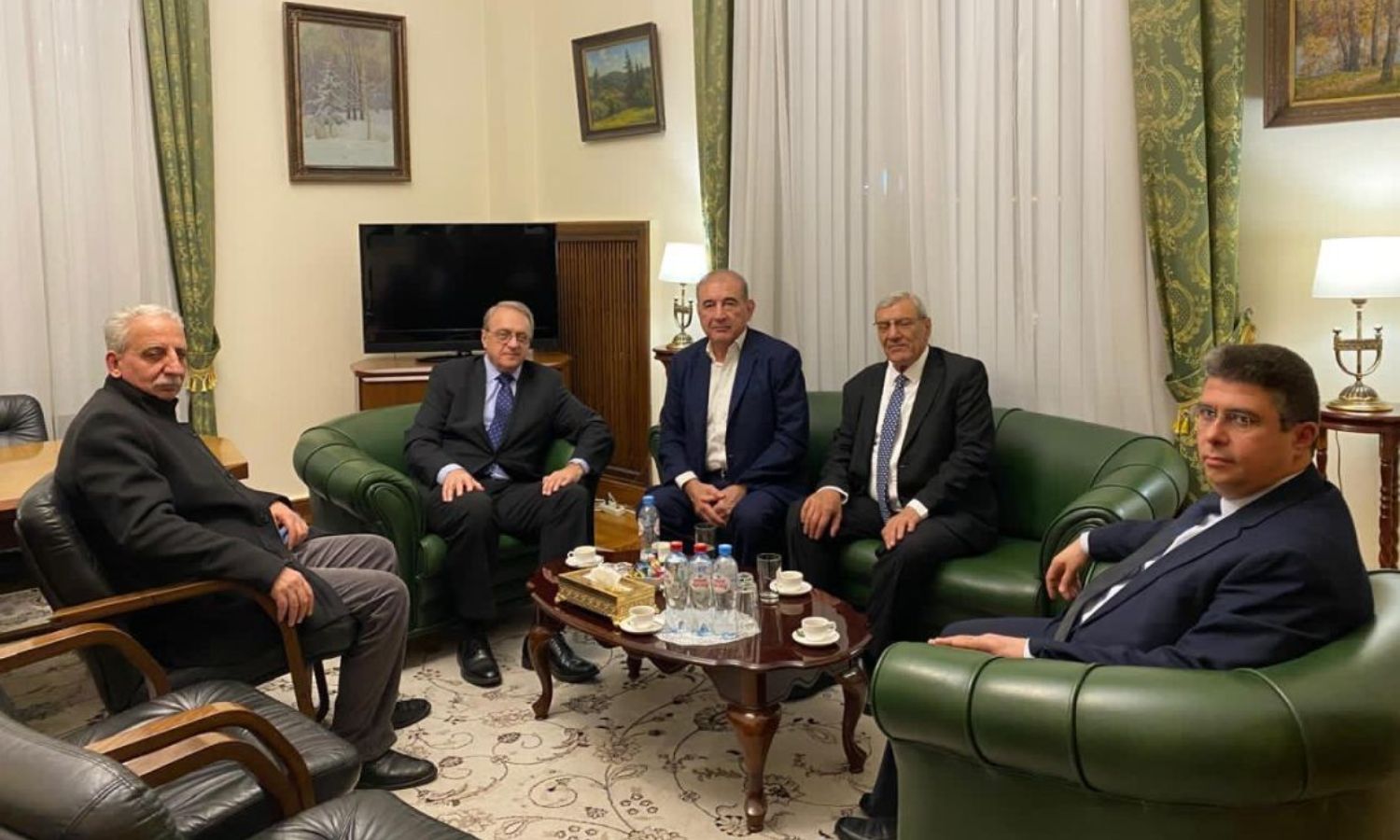On Monday, November 25, Russian Deputy Foreign Minister Mikhail Bogdanov met with a delegation from the Moscow Platform, a Syrian opposition group. The delegation was led by Qadri Jamil, head of the platform and representative of the Front for Change and Liberation, and included Alaa Arafat, the platform’s internal coordinator. Also present were Obeida Nahhas, head of the National Renewal Movement, and Salah Darwish, secretary of the Kurdish Progressive Democratic Party in Syria, both of whom are new members of the Moscow Platform.
According to a statement from the Russian Foreign Ministry’s official website, the meeting focused on discussions regarding the situation in and around Syria amid the ongoing escalation in the Middle East. Both sides emphasized the urgent need for an end to the bloodshed and called for a peaceful resolution of the Arab-Israeli conflict, based on existing international legal frameworks. They also stressed the importance of preventing the spread of aggression into Syrian territory.
The conversation also addressed the Syrian settlement process, specifically in relation to UN Security Council Resolution 2254, with a firm commitment to upholding Syria’s sovereignty, unity, and territorial integrity. The parties reiterated the crucial role of Syrian-Syrian dialogue in achieving a political solution, as well as the importance of addressing Syria’s reconstruction and facilitating the return of refugees in safe conditions to their homeland.
Additionally, the Russian side was updated on the recent decisions to expand the organizational base of the Moscow Platform, with new national parties and movements joining its ranks.
Expansion of the Moscow Platform
The Moscow Platform recently held a virtual meeting on November 24 to further expand its membership. During this meeting, an updated document titled “Moscow Platform: Programmatic Themes” was adopted, amending the platform’s founding principles from the 2014 Front for Change and Liberation. The new document outlines key goals, including restoring Syria’s unity, ending the de facto partition of the country, expelling foreign forces such as the Israeli occupation from the Golan Heights, and working toward a political solution in line with UN Security Council Resolution 2254. This resolution calls for dialogue between the Syrian government and opposition, as well as the guarantee of Syrians’ right to self-determination.
The ten-point program emphasizes that Syria’s governance should be determined by its people, with the Kurdish issue addressed as a national democratic concern within the framework of a Syrian constitution. It also highlights several obstacles to progress, including Zionists, warmongers, and both internal and external spoilers. The document criticizes Western initiatives, such as “step-by-step” approaches and calls for “regime behavior change,” describing these as attempts to prolong the crisis and divide Syria.
The document further argues that Western sanctions have harmed Syria as a whole, rather than targeting the regime specifically. It advocates for comprehensive constitutional reform aimed at redistributing powers among Syria’s legislative, judicial, and executive branches. The platform also calls for a balance between centralization and decentralization, with central authority retaining strong powers in foreign policy, defense, finance, and economic matters, while empowering local governance in regional areas.
Finally, the document notes internal divisions among opposition groups, acknowledging that the key to Syria’s future lies with the majority of the Syrian people, particularly the impoverished and oppressed.
This article was translated and edited by The Syrian Observer. The Syrian Observer has not verified the content of this story. Responsibility for the information and views set out in this article lies entirely with the author.


